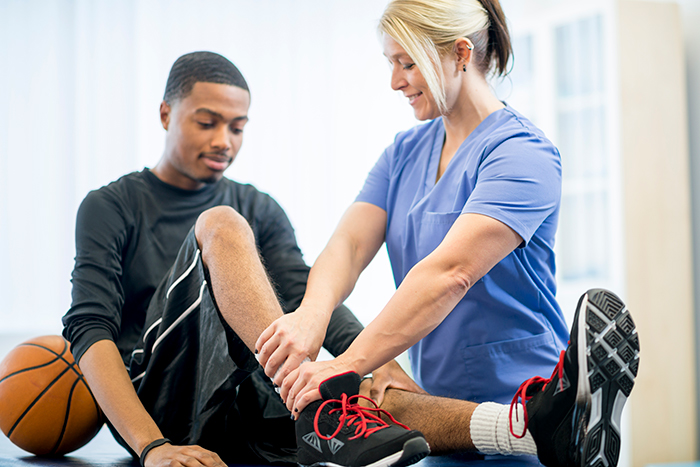Before They Get in the Game, Get Kids a Sports Exam

It’s an ounce of sport-specific prevention, to prevent a pound of cure.
So, your son or daughter wants to be a play-ah?
Well, before they slip on those Nikes and trot out for tryouts they should slip into their doctor’s office for a physical. And not just any physical. A sports physical.
Yes, there’s a difference. In fact, many schools and organized sports leagues require that kids get a sports exam before they get to lace up for practice. High schools in all South Florida school districts do.
What’s the difference?
A sports exam, explains Dr. Carolyn Kienstra, a board-certified pediatric and young adult sports medicine physician at the University of Miami Sports Medicine Institute, is specifically designed to make sure kids are ready for the rigors of the sport they’re getting into.
“The sports physical is a little bit more focused to ensure as best we can through a screening process that it is safe for the students,” she says, “to make sure that there are no injury risks, or that there wasn’t an injury in the past that has not been treated or rehabilitated properly.”
Come on, the pros do it. Shouldn’t you?
(The answer, in case you’re wondering, is YES!)
What are they looking for in a sports exam?
Well, the same things you’d look for during a regular annual exam, plus.
Naturally, your doctor will look at your child’s medical history. That includes shortness of breath or pain during exercise or activity, dizziness or fainting spells, fatigue, or high blood pressure.
Heart conditions, or a history of heart attacks or sudden death in the family is important. Some doctors recommend an EKG, but the jury is still out on that.

And they need to know about medical conditions such as asthma or diabetes.
“A child with asthma may not have any problems normally,” Kienstra says, “but when they play sports,there may be different management involved if the activity exacerbates their symptoms.”
The same is true for diabetes.
“The management changes a lot during physical activity or playing sports.”
There’s also a vision exam, to make sure your corrected vision is at least 20/50.
“If you’re considered legally blind in one eye, you’re required to wear appropriate protection for the other eye.”
Make sure you tell your doctor what sport your kids want to play, and ask if there are any special concerns you should have in mind.
And, Dr. Kienstra says, no matter what they want to play, a sports exam is a good idea. Even if it’s not required.
Carlos Harrison is a contributing writer for UMiami Health News. He is a former national and international television correspondent, as well as a newspaper and magazine writer and editor.
Tags: Dr. Carolyn Kienstra, physical exams miami, sports exam in Miami, sports medicine in miami, University of Miami Sports Medicine Institute
